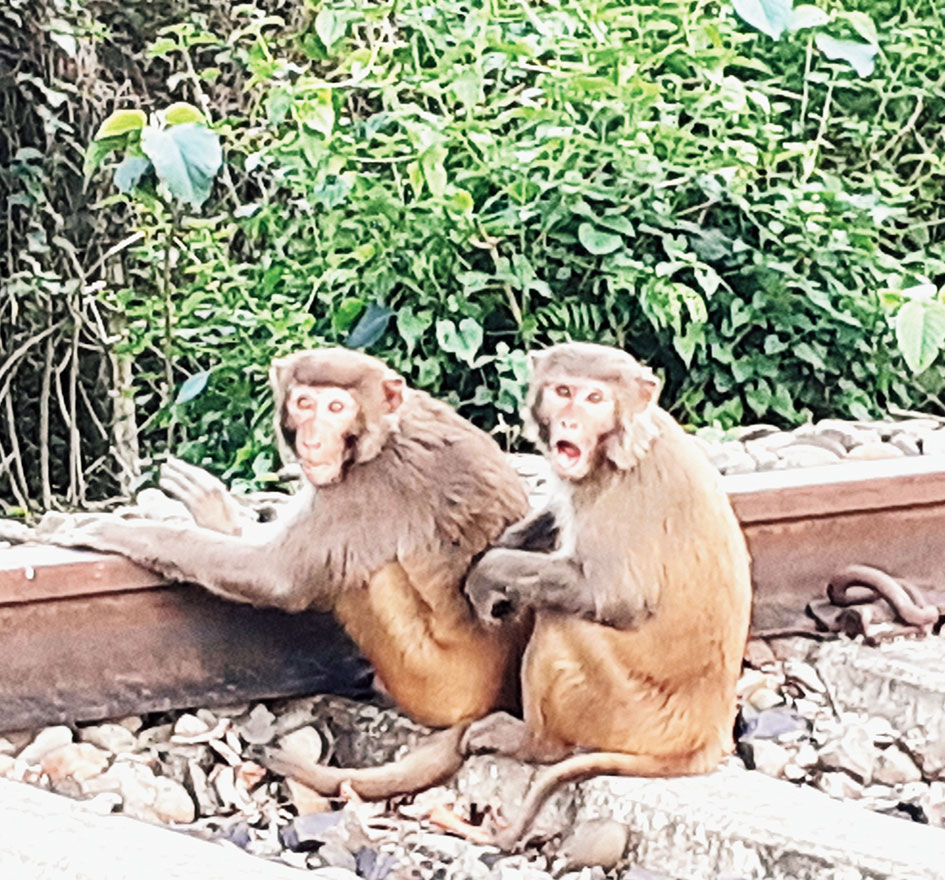It’s not citizens who have been stepping out of their homes during the lockdown in Upper Assam’s Tinsukia district — it’s the wildlife.
A troop of monkeys can be seen roaming on railway tracks, National Highway 37 and streets in Tinsukia bringing smiles on people’s faces as they peep out from their windows.
On Wednesday afternoon, the quiet and deserted streets were full of monkeys running about much to the amusement of children in their houses.
“There are no vehicles on roads and streets. The tracks too are free of trains. Overall, there is no noise pollution or public movement. These factors have attracted wild animals to come out, delighting us, especially children, at home,” said professor Anuradha Sarkar, a resident of Christian Colony.
The Upper Assam districts are surrounded by several reserve forests, wetlands and avian spots, including Dibru-Saikhowa National Park and Maguri-Motapung Beel.
People have also spotted lesser whistling duck, wild rabbit, mongoose and rare birds.
“Boat and ship movement has also come to a halt in rivers, lakes and ponds. So, people are able to spot rare aquatic animals and birds,” said Mamata Biswas, a resident of Guijan, near Dibru-Saikhowa National Park.
Instances of animals venturing into human habitat have been reported across the state.
In Sivasagar district, residents have been hearing foxes howl more frequently like decades before.
One was spotted at Beesakopie in Tinsukia too.
A rhinoceros was reportedly seen out for a leisurely walk at Sonapur, on the outskirts of Guwahati.
The state capital has recorded some 200 species of mammals because of the presence of 11 forest reserves and several wetlands, including Deepor Beel, and hills.
Green Bud Society secretary Devajit Moran said, “There has been decline in wildlife in the state and the Northeast for decades. However, the lack of activity and pollution in cities, towns and even villages will not only benefit animals but also humans. The people may emerge from their homes with a new understanding of their relationship with the natural world. We must look forward to preserve that kind of peace.”











